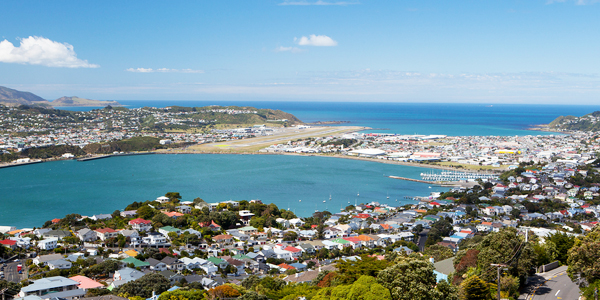
Retiring in Wellington is a dream for many international retirees. The city offers a unique blend of urban sophistication and natural beauty, with a vibrant cultural scene, excellent healthcare, and a welcoming community. However, like any major decision, retiring in Wellington comes with its own set of challenges and considerations.
Cost of Living
Wellington is not the cheapest city in New Zealand, but it offers good value for money compared to other major cities worldwide. Housing is the biggest expense, with the median house price in Wellington being NZD 830,000 as of 2020. However, the cost of living is offset by the high quality of life and the availability of free or low-cost public services, such as healthcare and public transportation.
Climate
Wellington’s climate is temperate maritime, with mild winters and warm summers. The city is known for its windy weather, earning it the nickname “Windy Wellington”. However, the wind helps keep the air clean and fresh, and the city enjoys plenty of sunshine throughout the year.
Healthcare
Wellington boasts some of the best healthcare facilities in New Zealand, with several top-rated hospitals and clinics. The city is home to Wellington Hospital, the largest hospital in the country, as well as several specialist clinics and private practices.
Public Healthcare System
New Zealand has a public healthcare system that provides free or low-cost healthcare to all residents, including international retirees. However, many retirees choose to take out private health insurance for additional coverage, particularly for non-urgent or specialist care.
Residency Options for Retirees
There are several visa options for international retirees wishing to settle in New Zealand, including the Parent Retirement Resident Visa and the Temporary Retirement Visitor Visa. These visas have different requirements and benefits, so it’s important to research and choose the one that best suits your needs.
Parks and Recreational Activities
Wellington is a paradise for nature lovers, with numerous parks, gardens, and nature reserves. The city is surrounded by hills and coastline, offering plenty of opportunities for hiking, biking, and water sports. The Wellington Botanic Garden and Zealandia Ecosanctuary are must-visit spots for any retiree.
Restaurants
Wellington is known for its vibrant food scene, with a wide range of restaurants catering to all tastes and budgets. Some popular spots include Ortega Fish Shack, a seafood restaurant with a relaxed atmosphere, and Floriditas, a bustling cafe and restaurant known for its fresh, local produce.
Learning the Language
While English is the main language spoken in Wellington, learning some basic Maori phrases can enrich your experience in New Zealand. The Wellington Community Education Centre offers Maori language courses for beginners.
Local Culture
Wellingtonians are known for their friendly and welcoming nature. The city has a diverse population, with a strong sense of community and a laid-back lifestyle. There are plenty of cultural events and festivals throughout the year, providing opportunities to engage with the local culture and meet new people.
Meeting People and Volunteering
Joining local clubs and organizations is a great way to meet people and get involved in the community. Volunteering is also popular among retirees in Wellington, with opportunities available in areas such as conservation, community services, and arts and culture.
Housing and Neighborhoods
Wellington offers a range of housing options, from apartments in the city center to houses in the suburbs. Some popular neighborhoods for retirees include Thorndon, with its historic houses and proximity to the Botanic Garden, and Oriental Bay, known for its beautiful beach and vibrant cafe scene.
Transportation
Wellington has an excellent public transportation system, with extensive bus and train networks. The city is also very walkable, with many amenities within walking distance in the city center. While having a car can be convenient for exploring the wider region, it’s not necessary for day-to-day life in Wellington.


